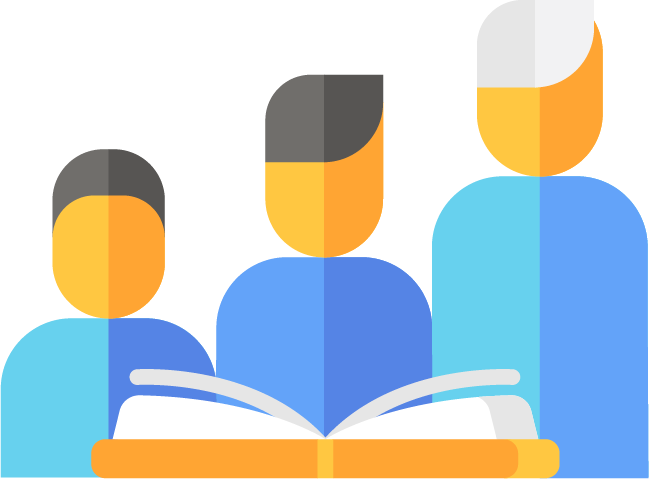ABOUT
The DIGITALLI project expects to increase the capacity of lifelong learning institutions and adult education providers to develop and implement digital transformation action plans. This will contribute to the modernisation of learning opportunities offered by educators, who will empower adult learners to be digitally competent by promoting the use of Europass Digital.
Credentials Infrastructure (EDCI), European Digital Skills Certificate (EDSC), and the DigComp Framework. The objectives of the DIGITALLI project will be achieved by promoting a 360-rounded systems change-oriented approach, based on the four key aspects for digitally transforming lifelong learning organisations: Human capital, Integration of technology, Infrastructures, and Research & Development in ICT.
The main activities include the development of a Toolkit for implementing digital transformation strategies, a digital Expert System, and an in-service Training Programme for educators.
Project aim
The project aims to build the capacity of lifelong learning and adult education institutions to implement digital transformation strategies, modernize their practices and promote the use of the most recent frameworks on digital competence from adults.

TARGET GROUPS

Adult education providers
Lifelong Learning Institutions

Managers and administrative staff
of Lifelong Learning Institutions

Adult educators and trainers

Adult learners

Stakeholders Policymakers
OBJECTIVES

Build the capacity of adult education institutional leaders to develop and implement digital education action plans that integrate AI technologies.

Build the capacity of adult educators to modernise and digitalise their teaching practices with AI applications, empowering adult learners’ digital literacy, utilising the DigCompEdu and TPACK frameworks.

Develop innovative quality resources for adult education leaders and adult educators, including a practical Toolkit, digital transformation expert system and a Training Programme that will support their everyday practice.

Promote adult education and lifelong learning institutions’ AI-focused digital learning transformation through capacity-building and preparedness of adult education stakeholders.
PARTNERS
Meta4 Innovations is a research and development organization that genuinely seeks to understand what people need and aspires to offer the highest quality services and innovative solutions that transform lives. The centre designs and develops innovative tools, methodologies, products and services in the field of digital learning innovation, entrepreneurship, sustainable development, social inclusion and technology empowered solutions that pragmatically respond to current social and economic challenges and simultaneously foresee and intuitively drive the changes needed to achieve future goals of a sustainable learning community. Meta4 Innovations supports the rationalisation of educational systems and aligns the education programs to the contemporary socio-economic context. It has extensive expertise and rich experience in developing innovative teaching and learning methodologies, tools and resources and has specialised knowledge for designing EQF and ECVET based Training Curriculum for private and public educational institutions in VET, Adult or School education segment. It has developed Digital Training Platforms for APPs based Learning to harness the potential of digital technologies for teaching and learning and to develop digital skills for all.
The Trebnje Center for Education and Culture is a public organization, established by the Trebnje municipality to promote and develop adult education. The organization has two units: Gallery for naïve art and Adult education center. CIK Trebnje is also the lead partner of Local Action Group Suhe krajine, Temenice in Krke (LAG STIK). LAG STIK is a regional association of representatives of public institutions (public sector), economy (economic sector) and civil society (private sector). The adult education center offers a comprehensive range of education programmes: from elementary school for adults to secondary education programmes, as well numerous non-formal education programmes (general education, training and courses). In recent years, increasing attention has been given to various projects that develop and encourage lifelong learning among different target groups, to raise the level of literacy, especially the socially weak (elderly, rural residents, members of the Roma community, special needs persons, the unemployed, young, persons serving a prison sentence, etc).
The Rural Hub was first established as an association in 2012 by a group of education, training and rural development professionals as a response to the impact of the economic crisis on small rural villages and towns in Ireland. The Rural Hub works within the rural economy and society in Ireland. Through their work in Erasmus+ projects, their aim is to bring educational innovation to the rural communities, where many services are lacking and where there is a gap in the provision of quality education pathways beyond school education. In their region, there is no third level education provider, meaning that many young people leave their communities, should they wish to continue their education. Through their work in the community, their aim is to bridge the gap between education offers which are available to urban learners, by bringing some diversity and innovation to the education offering in the rural towns and villages where they operate. The Rural Hub has been providing a wide range of community development courses for local residents to support greater community involvement and enhanced social inclusion, targeting growing isolation to achieve the integration of migrant communities with the host communities and their counterparts in other migrant communities. It targets a major part of its actions at people who have moved into the local area in the last 10 years which includes a significant Ukrainian, Polish, Lithuanian, Romanian and South American and South African population.
CARDET360 is an independent social innovation organization that emerged from the rich heritage of CARDET (www.cardet.org), an international non-profit renowned for its global expertise in diverse settings. While distinct in its focus, operations, and status, CARDET360 shares the foundational principles, values, and expertise, bringing a large portfolio of initiatives in diverse sectors including education, inclusion, digital transformation and digital skills, health and wellbeing. Its international team of experts have decades of global expertise in education research and development. CARDET is a full member of ALL Digital, a Pan-european network of more than 25,000 digital competence centers promoting digital transformation and digital skills across Europe. CARDET is a formal member of the Digital Skills and Jobs Coalition.
The University of Nicosia (UNIC) was established in October 2007, and it is the largest university in Cyprus with over 12,500 students from across the globe. Located in Nicosia and with a presence in 18 other cities worldwide, the institution employs more than 1000 staff faculty. Its research staff conducts cutting-edge research on social issues and innovative teaching and training approaches, including Artificial Intelligence. UNIC offers 41 bachelor’s, 37 master’s, 30 doctoral, and 29 distance learning degrees, utilizing the latest technologies and learning design theory to develop students’ critical analysis, reflection, and problem-solving skills. Its state-of-the-art premises and eLearning platform provide access to extensive online learning resources, fostering a multicultural learning environment. Through its participation in projects as a partner or coordinator, the University has developed a wide base of knowledge and expertise in research output and project management.

